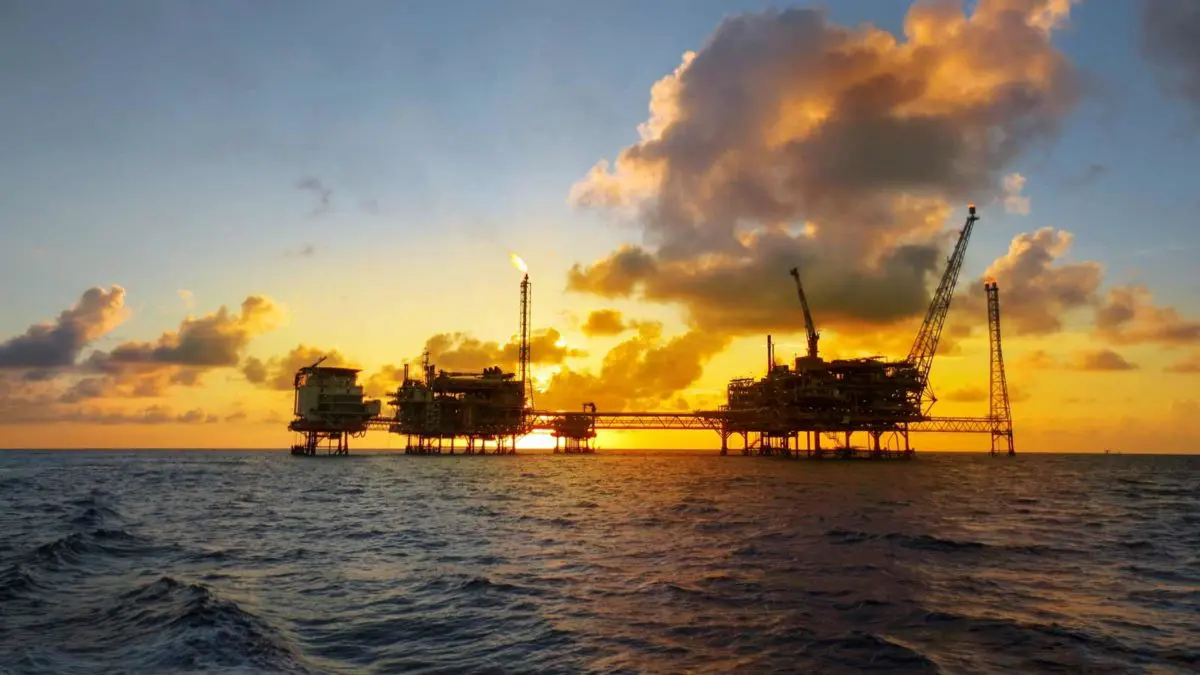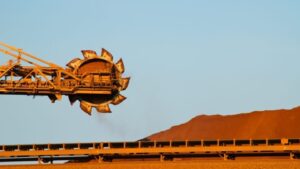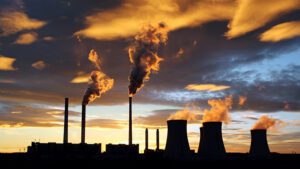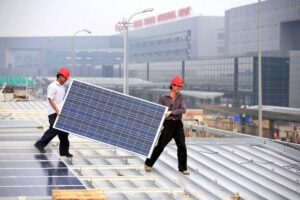A new report has revealed that nine private financial institutions poured a collective $1.15 billion into the Barossa gas project – Santos’ massive and controversial offshore gas reservoir in the Timor Sea – despite most having committed to net-zero emissions.
The nine banks provided loans to build the Floating Production Storage and Offloading (FPSO) vessel, a ship that will process gas extracted at the Barossa and transport it to the existing Darwin liquefied natural gas (DLNG) facility.
According to the report, Betting on a Sinking Ship, all but two of the banks involved have net-zero by 2050 commitments enshrined in their lending and investment portfolios, under the UN-convened Net-Zero Banking Alliance (NZBA).
The Barossa project is expected to release 13.5 million tonnes of CO2 equivalent per year, amounting to around 3% of Australia’s annual carbon emissions, even, according to the report, with proposed carbon capture and storage (CCS).
Scientists from the Intergovernmental Panel on Climate Change and the International Energy Agency have both repeatedly warned that to meet net-zero by 2050, the world must stop opening new oil and gas fields immediately.

“Here in Australia, we are already seeing the effects of the climate crisis, with record-breaking bushfires and floods,” said Dr Luke Fletcher, executive director of Jubilee Australia Research Centre.
“Our research has found that the Barossa gas field could be Australia’s dirtiest LNG operation.
“Fighting the climate crisis must begin with stopping new fossil fuel projects from going ahead. As the Australian government legislates its signature safeguard mechanism policy to combat emissions, financiers could be investing in a failed operation.”
The Barossa project has already faced major hurdles: in September, Australia’s Federal Court ruled that the offshore gas regulator National Offshore Petroleum Safety and Environmental Management Authority (NOPSEMA) should not have approved drilling in the field. Santos lost its December appeal against that ruling.
Then, in January just days before drilling was supposed to begin for a pipeline that would transport gas from the project, NOPSEMA demanded Santos carry out studies to check for cultural sites across the 260 kilometre route.
The new report comes hot on the heels of a series of legal challenges against the project led by First Nations communities, with Traditional Owners from the Tiwi Islands lodging a human rights complaint in March against twelve banks involved with the project.
The human rights complaints were lodged by six people from the Munupi, Malawu and Jikilaruwu clans, as well as a Traditional Owner from Larrakia country in Darwin, assisted by Equity Generation Lawyers.
Four of those complaints were made against mainstream Australian banking institutions ANZ, Commonwealth Bank, Westpac and NAB.
“Gas companies, banks, public financial institutions, and investors all need to reckon with the fact that you can’t just rush ahead with fossil fuel projects on First Nations peoples’ land without even talking to them first, and without obtaining their consent,” said Naish Gawen from Environment Centre NT.
“That is not acceptable conduct, and it will be opposed. If developed, Barossa would be the dirtiest offshore gas project in Australia. Not only is the project a polluting carbon bomb, it is opposed by Traditional Owners, and poses grave risks to marine life and Sea Country.”
The latest report was co-authored by South Korean NGO Solutions for Our Climate (SFOC), Environment Centre NT, the Japan Center for Sustainable Environment and Society (JACSES), Jubilee Australia Research Centre, Reclaim Finance, and German non-profit Urgewald.
The banks financing the project include The banks financing the gas project include the state-owned Korea Development Bank (KDB), United Overseas Bank (UOB), Clifford Capital, MUFG Bank, Natixis, Oversea-Chinese Banking Corporation (OCBC), Sumitomo Mitsui Banking Corporation (SMBC), ABN Amro, and Cooperative Rabobank. Macquarie Bank was involved as a structuring bank, facilitating the financial transaction.
Lucie Pinson, Executive Director of report co-publisher Reclaim Finance, an NGO that warns about the impacts of financial actors on climate and society, was scathing in her assessment.
“The involvement of these banks in this polluting project highlights the utter meaningless of the net zero pledges they have made,” Pinson said.
“The signatories to the Net Zero Banking Alliance, which include the French bank Natixis, want to be seen as climate leaders, but their actions show that they are still supporting the development of extremely damaging fossil fuel projects, which will lock us into a high carbon future.
“This is classic greenwashing and it is high time Natixis and the other NZBA banks stop financing new fossil gas projects, including Barrosa.”
Dongjae Oh, Oil and Gas Finance Researcher at SFOC said funding such a controversial gas project was making less and less economic sense for these banks, and urged them to pull away.
“The Barossa gas project is floundering. Between strengthened environmental regulation and growing public opposition against the project, the FPSO will become useless.
“The banks have a choice. They can drown along with the Barossa gas project and suffer financial, legal and reputational damages, or walk away now and display climate leadership.”










